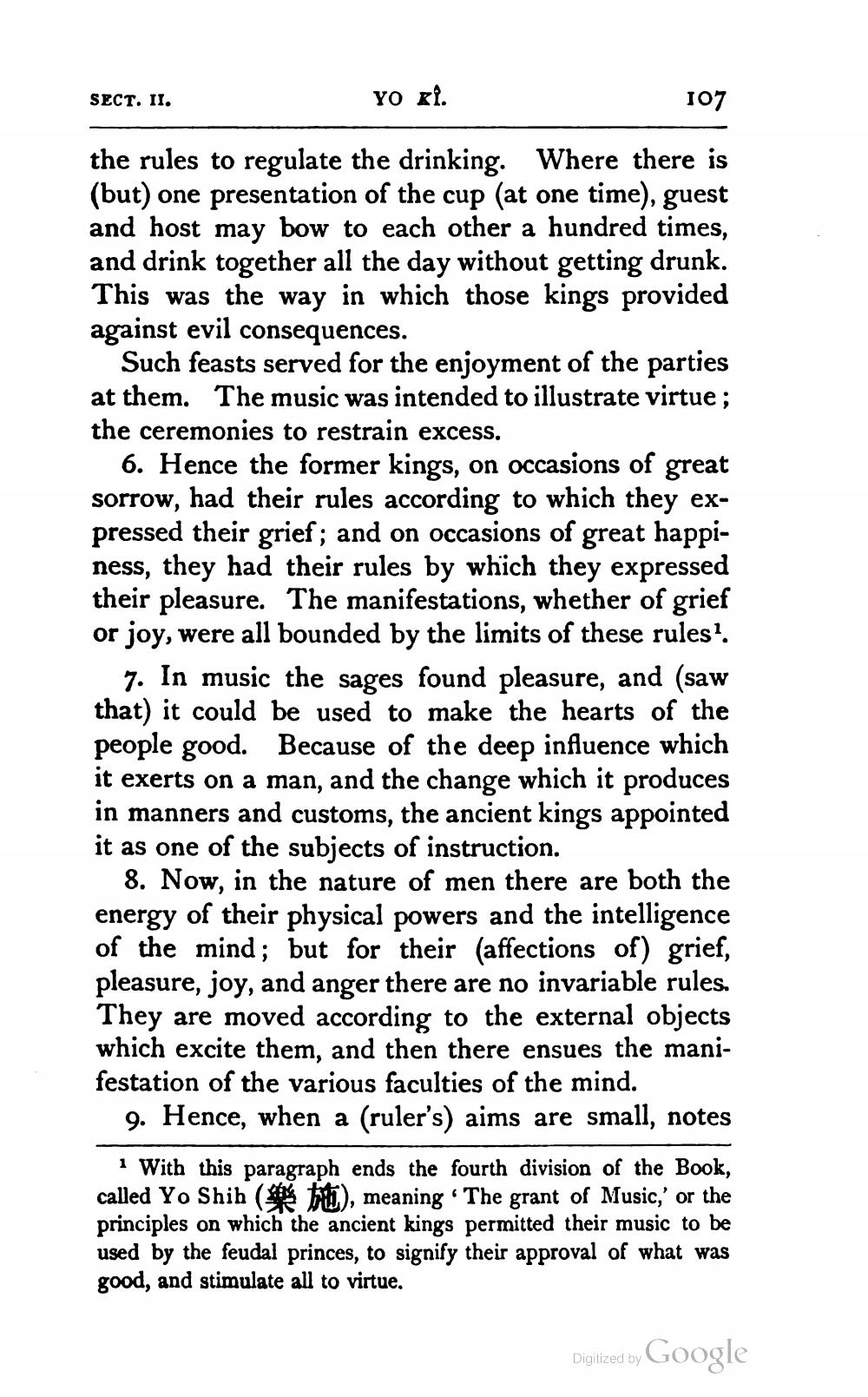________________
SECT. II.
YO KI.
107
the rules to regulate the drinking. Where there is (but) one presentation of the cup (at one time), guest and host may bow to each other a hundred times, and drink together all the day without getting drunk. This was the way in which those kings provided against evil consequences.
Such feasts served for the enjoyment of the parties at them. The music was intended to illustrate virtue; the ceremonies to restrain excess.
6. Hence the former kings, on occasions of great sorrow, had their rules according to which they expressed their grief; and on occasions of great happiness, they had their rules by which they expressed their pleasure. The manifestations, whether of grief or joy, were all bounded by the limits of these rules?
7. In music the sages found pleasure, and (saw that) it could be used to make the hearts of the people good. Because of the deep influence which it exerts on a man, and the change which it produces in manners and customs, the ancient kings appointed it as one of the subjects of instruction.
8. Now, in the nature of men there are both the energy of their physical powers and the intelligence of the mind; but for their (affections of) grief, pleasure, joy, and anger there are no invariable rules. They are moved according to the external objects which excite them, and then there ensues the manifestation of the various faculties of the mind.
9. Hence, when a (ruler's) aims are small, notes 1 With this paragraph ends the fourth division of the Book, called Yo Shih (un tot), meaning · The grant of Music,' or the principles on which the ancient kings permitted their music to be used by the feudal princes, to signify their approval of what was good, and stimulate all to virtue.
Digitized by Google




